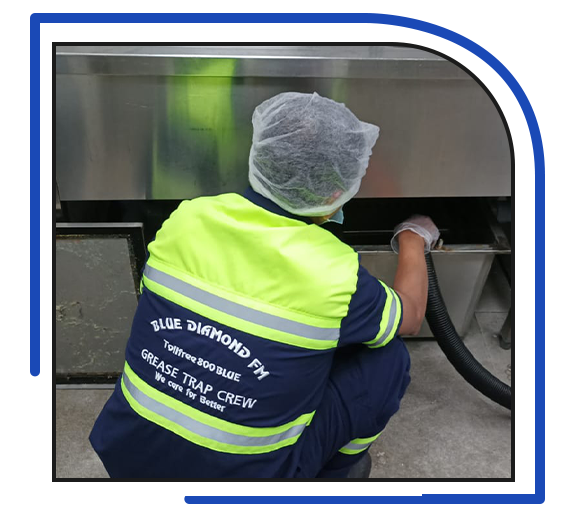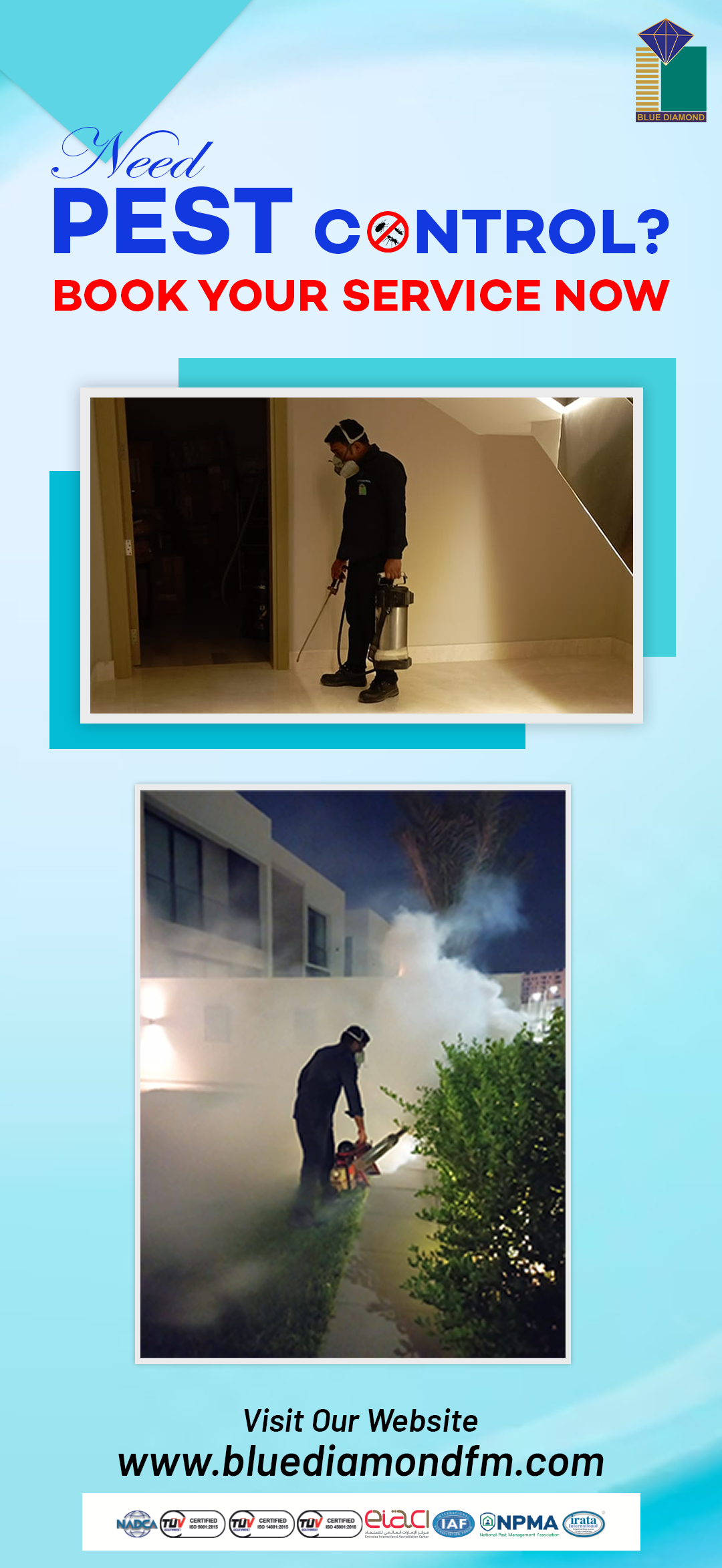Grease Trap Cleaning
What is Grease Trap Cleaning?
Grease trap cleaning is a vital maintenance process designed to address the accumulation of fats, oils, and grease (FOG) within a commercial kitchen’s grease trap system. Grease traps, also known as grease interceptors or grease recovery devices, are essential components installed in plumbing systems to capture and prevent FOG from entering the municipal wastewater system.
Over time, as cooking and food preparation activities take place, grease traps accumulate a mixture of fats, oils, and solid food particles. This buildup can lead to various issues, including reduced drainage efficiency, foul odors, and the potential for plumbing blockages.
Grease trap cleaning is the systematic removal and disposal of these accumulations, ensuring the continued functionality of the grease trap and preventing environmental and operational problems.

The process involves the use of specialized equipment and techniques to extract the collected FOG and solid waste from the trap. Grease trap cleaning is not only essential for maintaining a clean and hygienic kitchen environment but also plays a crucial role in adhering to regulatory standards.
Many local authorities and environmental agencies have strict guidelines regarding the maintenance and cleaning of grease traps to prevent the discharge of pollutants into the sewage system.
Grease trap cleaning services typically include a thorough inspection of the trap, followed by the removal of accumulated grease and debris. Professionals often employ pumping equipment to extract the waste, and additional methods such as scraping, rinsing, and eco-friendly enzyme treatments may be utilized to ensure a comprehensive clean.
Regular grease trap cleaning is recommended as part of routine kitchen maintenance to prevent costly issues such as plumbing backups, foul odors, and potential fines for non-compliance with environmental regulations.
By investing in grease trap cleaning services, businesses not only ensure a smoothly functioning kitchen but also contribute to environmental sustainability by preventing the contamination of water systems with FOG.
How Grease Trap Cleaning Benefits the Environment
Grease trap cleaning serves as a pivotal practice in the foodservice industry, not only maintaining the efficiency of kitchen operations but also significantly benefiting the environment.
Prevents Water Contamination:
The primary role of grease traps is to capture fats, oils, and grease (FOG) from kitchen wastewater, preventing these substances from entering the municipal sewer system.
Environmental Impact: Without proper grease trap maintenance, FOG could infiltrate water treatment facilities, leading to contamination of natural water sources. This contamination poses a threat to aquatic ecosystems, potentially harming aquatic life and disrupting the delicate balance of ecosystems.
Reduces Risk of Pipe Blockages:
Accumulated FOG in grease traps can solidify and adhere to the walls of pipes, causing blockages and restricting the flow of wastewater.
Environmental Impact: Blocked pipes can lead to overflows and sewage backups. Grease trap cleaning mitigates this risk, preventing the release of untreated wastewater into the environment and reducing the potential for soil and water pollution.
Supports Sustainable Practices:
Regular grease trap cleaning demonstrates a commitment to sustainable business practices and environmental responsibility.
Environmental Impact: Sustainable practices in the foodservice industry contribute to the overall reduction of environmental impact. Proper grease trap maintenance aligns with this ethos by preventing the release of harmful substances into the environment and showcasing a dedication to minimizing the ecological footprint of the business.
Minimizes Odor and Air Pollution:
FOG buildup in grease traps can lead to foul odors in and around the kitchen area.
Environmental Impact: Unpleasant odors not only affect the immediate surroundings but can also contribute to air pollution. Grease trap cleaning eliminates these odors, creating a healthier and more pleasant environment for both workers and the surrounding community.
Encourages Responsible Waste Disposal:
Grease trap cleaning involves the proper disposal of collected FOG and solid waste.
Environmental Impact: Responsible waste disposal practices prevent the release of harmful substances into landfills or water bodies.
By adhering to strict disposal regulations, grease trap cleaning contributes to the overall reduction of environmental harm associated with improper waste management.
Grease trap cleaning is not just a routine maintenance task; it is a critical component of responsible and sustainable business practices.
By preventing water contamination, reducing the risk of pipe blockages, supporting sustainability, minimizing odors, and encouraging responsible waste disposal, grease trap cleaning emerges as a valuable contribution to the protection and preservation of the environment.
Grease Trap Cleaning Methods
Maintaining a clean and efficient grease trap is crucial for the proper functioning of commercial kitchens. Grease trap cleaning methods vary, and professionals employ a combination of techniques to ensure a thorough and effective clean.
1 Pumping:
Pumping is a fundamental method for grease trap cleaning, involving the use of specialized vacuum equipment to remove accumulated grease and solid waste.
Professionals insert a hose into the grease trap, creating a vacuum to extract the contents. This process ensures the removal of liquid fats and solid debris, preventing blockages and restoring the trap’s optimal capacity.
2 Scraping and Rinsing:
Mechanical scraping and high-pressure rinsing are effective methods for dislodging and removing stubborn grease and residue adhering to the trap’s interior surfaces.
Our Technicians use scraping tools to break down and loosen deposits, followed by a thorough rinse with pressurized water to flush out the dislodged material. This method leaves the grease trap clean and free-flowing.
3 Hydro Jetting:
Hydro jetting involves the use of high-pressure water jets to clean the interior surfaces of the grease trap, removing grease, debris, and sediment.
Water is pressurized and directed into the trap, breaking up and flushing away accumulated materials. Hydro jetting is particularly effective for preventing future blockages and maintaining the flow capacity of the trap.
4 Chemical and Enzyme Treatments:
Eco-friendly chemical and enzyme treatments can be employed to break down grease and organic matter within the trap.
These treatments introduce specialized chemicals or enzymes that accelerate the decomposition of grease, making it easier to remove during the cleaning process. Environmentally friendly options are often favored to minimize ecological impact.
5 Manual Cleaning:
In cases of heavy buildup or inaccessible areas, manual cleaning may be necessary.
Our technicians manually remove accumulated grease and debris using specialized tools. This method ensures a meticulous clean, especially in areas where automated equipment may have limitations.
6 Regular Maintenance Plans:
Implementing a regular maintenance plan is a proactive approach to grease trap cleaning.
Scheduled cleanings at predetermined intervals help prevent excessive buildup, ensuring the trap operates efficiently.
Regular maintenance plans may include a combination of all methods based on the specific needs of the grease trap and kitchen operations.
Choosing the appropriate grease trap cleaning method depends on factors such as the level of accumulation, the type of establishment, and the specific design of the grease trap.
Professional grease trap cleaning services assess these factors to tailor a cleaning approach that ensures optimal performance and compliance with environmental regulations.
Regular maintenance is key to extending the life of the grease trap and preventing costly issues associated with neglect.
Advantages of Grease Trap Cleaning
Grease trap cleaning is a critical aspect of maintaining a functional and hygienic commercial kitchen. Beyond ensuring compliance with regulations, this practice offers a range of advantages that contribute to the efficiency, sustainability, and overall well-being of a business.
1 Compliance with Regulations:
Regular grease trap cleaning ensures compliance with local environmental regulations and health codes.
Adhering to these regulations prevents businesses from incurring fines and penalties, demonstrating a commitment to responsible waste management.
2 Improved Efficiency:
Cleaned grease traps operate more efficiently, preventing clogs and backups in plumbing systems.
Maintaining optimal flow capacity ensures uninterrupted kitchen operations, reducing downtime and the risk of costly repairs.
3 Cost Savings:
Regular cleaning prevents the need for emergency repairs and extends the lifespan of the grease trap.
Businesses that invest in preventative maintenance save money on potential repairs or replacements, contributing to long-term cost efficiency.
4 Prevention of Foul Odors:
Grease buildup can lead to unpleasant odors in and around the kitchen area.
It eliminates foul odors, creating a more pleasant working environment for kitchen staff and improving the overall experience for customers.
5 Enhanced Kitchen Hygiene:
Regular cleaning reduces the risk of bacterial growth and microbial contamination in the grease trap.
A hygienic kitchen environment promotes food safety and reduces the likelihood of foodborne illnesses, safeguarding both customers and staff.
6 Prevention of Plumbing Issues:
Accumulated grease can lead to blockages in plumbing systems.
Grease trap cleaning prevents plumbing issues such as backups and overflows, ensuring the smooth and consistent operation of the entire kitchen infrastructure.
7 Extended Grease Trap Lifespan:
Routine maintenance prevents the deterioration of the grease trap over time.
Businesses that invest in regular cleaning can extend the lifespan of their grease trap, avoiding the need for premature replacements and associated costs.
In the domain of commercial kitchens, the careful practice of grease trap cleaning emerges as a cornerstone for operational efficiency, environmental responsibility, and overall business success.
From understanding the fundamental essence of grease trap cleaning to delving into its various benefits, this comprehensive exploration reinforces the indispensable role of this practice in the foodservice industry.
Most Frequently Asked Question
Have a question that’s not answered here? Feel free to reach out to us, and our team will be happy to provide the information you need for a better understanding of our AC duct cleaning services.
Regular cleaning depends on factors like establishment size and grease production, typically ranging from 30 to 90 days for smaller setups.
Neglecting cleaning can lead to foul odors, slow drainage, plumbing issues, environmental pollution, and health code violations.
Yes, a clogged trap can cause foul odors and create a breeding ground for bacteria, potentially posing health risks.
Most commercial kitchens dealing with fats, oils, and grease are required by law to have grease traps installed to comply with health and safety standards.
business
Our Working Process
Let’s start the journey towards success and enhance revenue for your business. Take your company to the next level.
Why CHoose us?
Pest Control service
- Decades of Expertise
Benefit from our extensive 29 years of experience in the pest control industry. Our professionals have improved their skills to perfection, ensuring effective solutions tailored to your unique needs.
- Proven Track Record
Join over 100,000+ satisfied customers who have entrusted us with their pest control needs. Our commitment to delivering exceptional services has made us a preferred choice.
- Safe for Your Loved Ones
Our pest control solutions are specially formulated to be safe for your loved ones while effectively eliminating pests. Enjoy a pest-free home without compromising on safety.
- Environmentally Friendly
Our eco-friendly chemicals provide effective pest control without compromising the health of our planet. It’s a responsible choice for a greener tomorrow.
- Public Health Certified
We take your health and safety seriously. We adhere to the highest industry standards, ensuring that your well-being is at the forefront of everything we do.
- Around-the-Clock Service
We understand that pest issues can arise at any time, That’s why our commitment to your comfort and safety extends 24 hours a day, 7 days a week.
Who we are
Book An Appointment Today
Blue Diamond would like to hear from you. if you have business inquiries. Get in touch with us.






